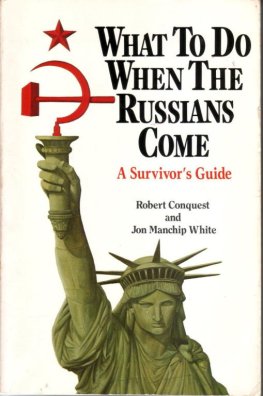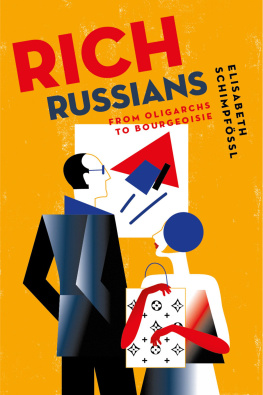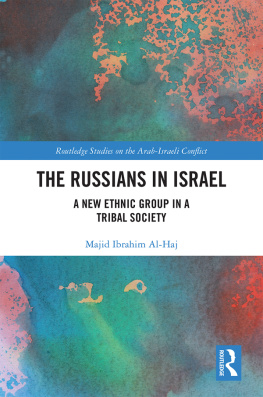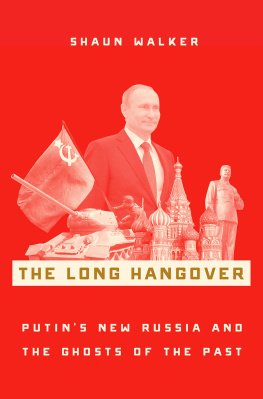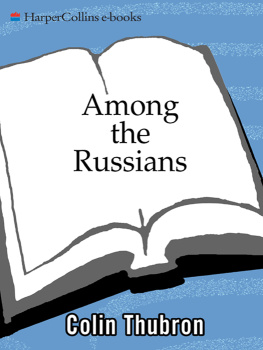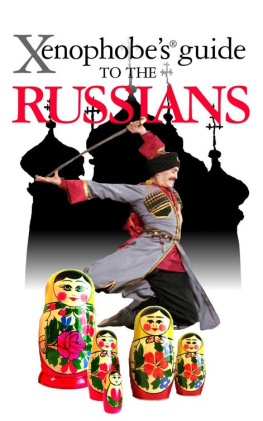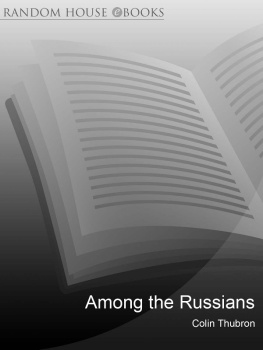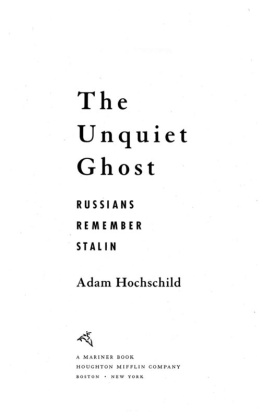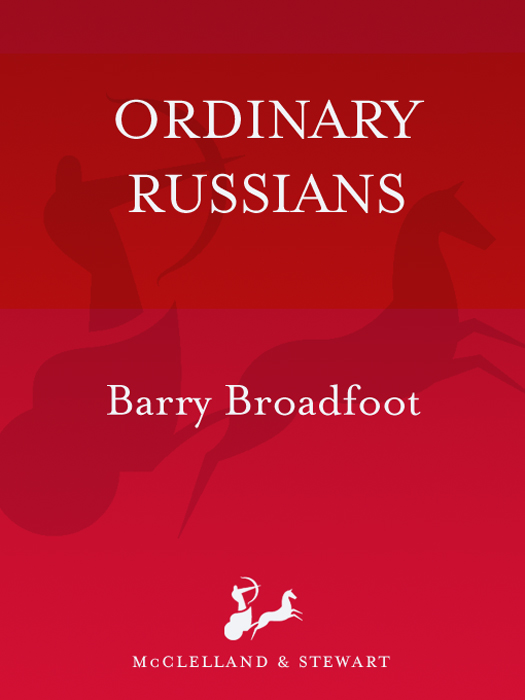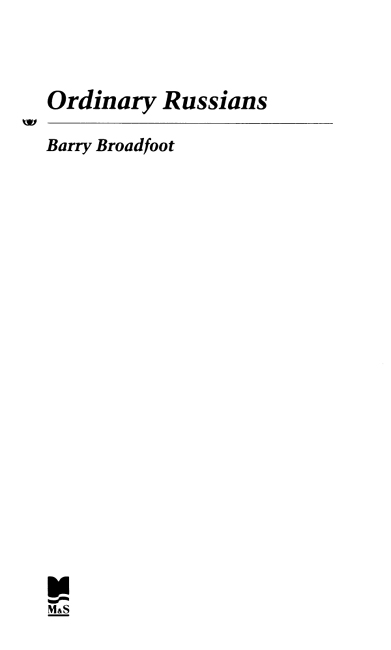
Copyright 1989 by Barry Broadfoot
All rights reserved. The use of any part of this publication reproduced, transmitted in any form or by any means, electronic, mechanical, photocopying, recording, or otherwise, or stored in a retrieval system, without the prior consent of the publisher is an infringement of the copyright law.
McClelland & Stewart Inc.
The Canadian Publishers
481 University Avenue
Toronto, Ontario
M5G 2E9
Canadian Cataloguing in Publication Data
Broadfoot, Barry, 1926
Ordinary Russians
ISBN 0-7710-1676-X
eBook ISBN: 978-1-55199-506-9
1. Soviet Union Description and travel 1970
2. Soviet Union Social Conditions 1970
3. Soviet Union Biography. I. Title.
DK29.B76 1989 914.704854 C89-094927-1
v3.1

To my children Susan and Ross and my granddaughter Emily
Contents

Preface

What the Soviet Union Is All About
I made my first visit to the Soviet Union in 1967, when as a columnist for The Vancouver Sun I visited Moscow, Leningrad, and the Black Sea resort of Sochi.
I recall the grim, winter-weary faces on Moscow streets, the fortress mentality, the never-ending and boring receptions awash with pompous bureaucrats. With good reason our group of Canadian industrialists, bankers, and attendant newspapermen spontaneously cheered when our jetliner lifted off from Moscow. I had seen few, and talked to no, ordinary Soviet citizens.
But I remembered one. As I was leaving one more official dinner out of boredom I passed through an outer dining room and saw a tall man of deeply lined face sitting alone with a bottle of vodka. He hailed me: Foreigner, hello, and say greetings from me to all the locomotive drivers in your country.
I wished I had stopped. He would have had something to tell me, and in English, but it was illegal for a citizen to talk to a foreigner. It still is; however, the law is rarely observed now. At the time, we all felt an irrational fear and sense of intimidation. But he often came to mind.
I quit newspapering and wrote eight oral histories on Canada and kept up my interest in the Soviet Union. Then, in March 1985, Mikhail Gorbachev was named the General Secretary of the Soviet Communist Party and flung the words glasnost and perestroika at a world tired of the unending Them-Against-Us posturing and the nuclear arms race.
These were brave new words: glasnost, the openness to speak and criticize, to tell no more lies; perestroika, the restructuring of the economic systems in order to bring the USSR into the real and competitive world. In New York, Harper and Row published his book, Perestroika: New Thinking for Our Country and the World.
Mr. Gorbachev was going public. With broad strokes he bluntly and boldly painted the Soviet Union to the world as a nation in disarray financially, industrially, agriculturally, and socially with its youth disillusioned and looking to the democracies in the West for solutions as well as for gratification.
Obviously, there were those who would not welcome change. There were an unbelievable 30 million bureaucrats running the country through centralist policies emanating from Moscow. Perestroika would hit them hardest of all. The 50 million workers knew theyd be expected to work harder, more efficiently. As for the 55 million passive and politically inactive pensioners living well-subsidized lives, they could be expected to adopt a wait-and-see attitude.
Gorbachev, strong in leadership, highly intelligent, and a die-hard Socialist, forthrightly told the Soviet peoples that there were no easy answers and he did what any honest politician would do: he said the road would be hard and long. How hard? How long? No one knew then. They still dont.
In late 1986, I saw my chance to find out how ordinary Russians were coping with these new ideas. I got the name of someone at the Soviet Embassy in Ottawa and wrote him. Would Moscow be interested in having someone come over and poke about? Yes, they were interested. Time passed. Nothing happened. Then, as if to check me out, I was invited to attend the Moscow International Forum for a Nuclear-Free World and Survival of Mankind. It turned out that I was the only Canadian representing our artists, musicians, writers, etal., which made me wonder. Had I just come to their attention at the right moment? Lets include a Canadian.
It was first class all the way for the 1,400 of us from eighty-six countries and totally orchestrated as a political playground for Marxist and Leninist ideals. We knew it, they knew it, so we all ignored it and had a good time.
It was then that I met with executives of Novosti Press Agency to plan a trip. I said where I wanted to go; the Agencys representatives would get me from A to B with reasonable dispatch and arrange any interviews I wanted. It would be hard work and tough travelling in a country not known for topnotch transportation facilities, and I insisted that I pay every cent. It was all agreed: no problem. Five months later I returned burdened down with tape recorders, tapes, camera, film, notebooks, and a few Western treasures like 99-cent pantihose, cigarette lighters, and cosmetics to hand out at appropriate moments.
Novosti Press let me down, often failing to set up appointments in advance, arrange for a car, or provide the best accommodations although my guide went in style the whole time. But thanks to resourceful field men at the local level, I got many interviews, ranging from a trapper, a policewoman, and a poet to fishermen, doctors, farmers, and factory managers.
Few of the official interviews appear in this book, because the Novosti Press translator was officialdom to them and officialdom, from long experience, meant trouble, or at least problems. Virtually all were from people who approached me in cafs, on the street, at markets, since I had many free times and days on my own. They wanted to talk about the outside world, to practise their English, to just sit with a foreigner and drink coffee and discuss their lives. They wanted no more of me than that.
A man who sat opposite me on the Moscow subway followed me out and we walked for two hours. A knock on the door in the hotel in Tbilisi: it was a student who had somehow got past the doorman, and I got a bottle of wine from the dining room and we talked for an hour. A black market taxi driver with a drunk passed out in the back seat drove me home from a friends home. A woman in the mini-bar in the Hotel Rus at 2 A.M. wanted to visit Greece, and a journalist, also in Kiev, had a keener grasp on life in his country than anyone I met.


